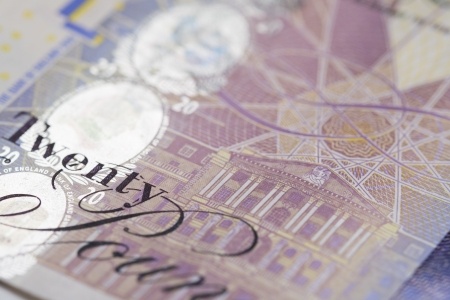Business Rates - Celebrations for small business owners?
Does George Osborne's budget announcement come with reason to celebrate for small business owners? Well, don't make a gin and tonic.
For around 600,000 small business, there maybe a temptation to raise a glass to Mr. Osbourne, no matter how unpalatable that may seem for some, when their zero rated business rates kick-in next year, but just make sure it’s not a Gin & Tonic.
This news, the highlight for many small business owners, has been somewhat overshadowed by the news that there will be a new sugar tax applied to soft drinks. Whether this will go any way to reducing childhood obesity in this country is now a hotly trending topic on social media, as is the side effect of increasing the cost to adults of soft drink mixers, such as tonic water - there’s always the slimline option though.
So, even if the Chancellor wants to sugar coat bad news in the future, he may have to pay for it.
Business Rates - Small business owners benefit
It’s truly excellent news for a lot of small business owners as they could see savings of nearly £6,000 a year.
However, this is still overshadowed by the introduction from April onwards of the new dividend tax scheme. This sees the scrapping of the notional 10% tax credit on dividends and the introduction of a £5000 tax free allowance on dividends. Above this level dividends will be taxed at 7.5% (basic rate), 32.5% (higher rate), and 38.1% (additional rate).
More welcome news is that corporation tax will drop to 17% by 2020.
Capital Gains Tax - Investors also given a helping hand
The higher rate of tax on capital gains will reduce from 28% to 20%, while the lower rate will see a reduction from 18% to 10%. This is particularly good news for investors looking to sell shares. This doesn't apply to residential property, but does happy to the sale of equity in businesses.
Also, capital gains on newly-issued shares in unlisted companies, kept for at least three years, will be capped at 10% with an allowance up to £10 million.
Highlights
- Corporation tax to be cut to 17% from 2020
- Capital gains tax slashed by 8% for both top rate and basic rate taxpayers
- Small business rate relief to increase from £6000 to £15000. They will also be linked to CPI and will track inflation.
- Personal allowance increase to £11,500 and the higher rate, 40% threshold, will increase to £45,000.
- CGT earned from small business investment will be capped at 10%.
- ISA extension to £20k
Issues To Watch
Trading income received in non-monetary form.
Exchanges that don't involve cash, receivables or payables is the target of new legislation being introduced. Trading receipts at their full value will be taken into account for tax purposes.
Partnership taxation
Consultation is set to begin on how partnerships calculate their tax liabilities. This may have an impact of the company structure you choose when starting out.
The administration of tax on employee benefits and expenses
The government plans to introduce a package of measures that will hopefully make the process of administering employee benefits and expenses a simpler task.
Salary sacrifice
Considering is being given to the practice of salary sacrifice, where employees can give up salary in return for ‘benefits-in-kind’. The government is looking to limit the range of benefits that attract income tax and NICs advantages under such schemes.
Find out more
If you're interested in finding out more on George Osborne's Budget, take a look at the following:
Budget 2016: Key Takeaways for Contractors
Budget 2016: Key Takeaways for Companies
Budget 2016: Impact on Individuals
Alternatively, if you'd like some friendly advise on the current reforms and are looking for help taking your business forward, feel free to get in touch via our contact form.
3 Ways to Make Tax Efficient Charitable Donations

We all want to receive greater tax efficiency out of our charitable giving; both for the charity, and for us. There are three main ways in which you can make tax efficient charitable donations with either you or them being able to claim tax relief on your donation, these being when you:
- declare (using an appropriate form) that you would like Gift Aid to be added to your donation,
- donate through a Payroll Giving scheme set up by your employer, and
- donate land or certain shares to a charity that agrees to accept your donation.
Gift Aid
Gift Aid is the simplest, and most common, way in which individuals and businesses alike can make tax efficient donations to charity. If you’re a British taxpayer, the Gift Aid scheme allows the charity you’re donating to to reclaim basic rate tax on your donation from HM Revenue and Customs (HMRC), thus increasing the overall value of your donation.
Your donation will only qualify for gift aid if you:
- pay at least as much income tax in a given tax year as the charity (or charities) will reclaim (if you don’t pay income tax, you cannot take advantage of the Gift Aid scheme),
- don’t receive excessive benefits, in any form, for your donation,
- make a Gift Aid declaration (using an appropriate form) that you would like Gift Aid to be added to your donation.
It should be noted that Gift Aid donations can be backdated up to four years. As we wrote in this article from last year, “It’s been suggested that the current declaration form doesn’t make the link between the tax the individual making the donation has already paid and the Gift Aid that can be claimed by the charity they’re donating to; something the upcoming improvements are sure to address.”
Payroll Giving
Donating to charity through a Payroll Giving scheme is a great way to give to charity every time you’re paid by your employer.
In order to make a gift to charity through a Payroll Giving scheme your employer must have already set up the scheme with their business, and you must authorise your employer to gift a certain amount from your pay every month (or however often you’re paid) to a Payroll Giving agency that’s been approved by HMRC. It’s this agency that will then send your gift on to your chosen charity (or charities).
The main benefit of donating to charity through your employer’s Payroll Giving scheme is that your donation is deducted from your pay before the tax you owe is worked out: therefore you receive immediate income tax relief at your current (basic, higher, or additional) tax rate.
For more information on payroll, click here.
Donating Land, Shares
If you decide you’d like to donate land or certain shares to charity, the first thing you need to do is contact the charity (or charities) in question to make sure they are able to accept your donation.
Next you’ll have to ensure that the land or shares you’re looking to donate qualify for tax relief. This is where you’ll want to speak with your accountant in relation to your specific circumstances, but in general the following donations qualify:
- freehold interests in land,
- leasehold interests in land (so long as the lease period is for a term of years absolute),
- shares and securities listed or dealt on the British stock exchange, or recognised overseas stock exchanges,
- holdings in recognised foreign collective investment schemes.
Keep in mind, if you donate any land to a charity it’s essential that they present you with a certificate proving that they have acquired the land from you in order for you to receive tax relief.
Experienced Tax Accountants
To speak with a professional accountant to discuss how you can make tax efficient charitable donations, or for anything else, contact us today on 020 8780 2349 or get in touch with us via our contact page to arrange a complimentary, no obligation meeting.


